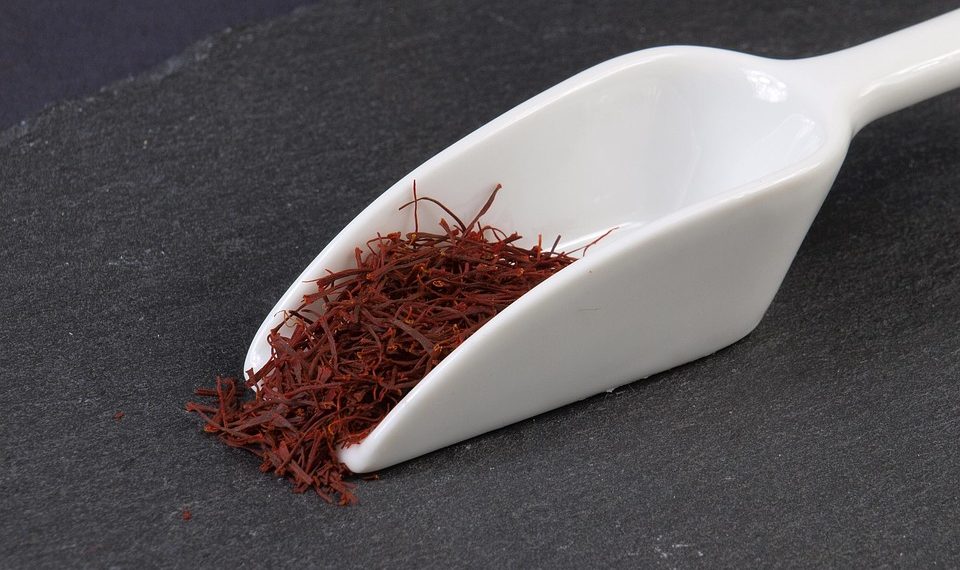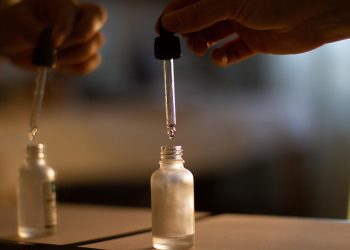7 Benefits of Saffron Spice for Erectile Dysfunction
Midday slump meets your favorite mug, filled with aromatic, golden-hued saffron tea. This spice, renowned for its culinary uses and vibrant color, is gaining attention in the health world—not just as a flavor enhancer, but as a potential ally in tackling erectile dysfunction (ED). Could a sprinkle of saffron in your diet help revive intimacy? Let’s explore how this ancient spice may offer benefits for enhanced sexual health.
Contents
What is Saffron?
Saffron, derived from the flower of Crocus sativus, is the most expensive spice by weight in the world. The bright red stigmas are hand-harvested, often resulting in its high price tag. Beyond its exquisite taste and intense color, saffron boasts a rich history in traditional medicine, particularly in cultures across the Mediterranean and Middle East. This spice has been used for centuries to treat various ailments, and recent research suggests it may positively impact erectile dysfunction as well.
1. Enhances Blood Circulation
One critical aspect of erectile function is blood circulation. An increase in blood flow to the genital area is essential for achieving and maintaining an erection. Various studies indicate that saffron may enhance blood circulation, thus facilitating sexual performance.
Research Insight: A study published in the International Journal of Impotence Research (Sharma et al., 2018) found evidence that saffron supplementation improved erectile function in men suffering from erectile dysfunction. The mechanism seems to revolve around improved endothelial function and blood flow, essential components for erectile responsiveness.
Limitations: While current findings are promising, more extensive research is needed to confirm these results across diverse populations.
2. Reduces Stress and Anxiety
Both stress and anxiety are common culprits behind erectile dysfunction. The psychological impact can be detrimental, creating a cycle that’s hard to break. Saffron may serve as a natural remedy to combat these negative feelings.
Research Insight: A meta-analysis in the Journal of Integrative Medicine (2021) reveals that saffron effectively reduces symptoms of depression and anxiety. The study indicates that the active compounds in saffron, particularly crocin and safranal, could influence mood positively.
Integrating saffron into your diet—be it in a comforting risotto or a delicate tea—might help create a more relaxed atmosphere during intimate moments.
Limitations: While saffron shows efficacy in reducing anxiety, it’s essential for those with severe anxiety disorders to seek appropriate therapeutic interventions.
3. Boosts Libido
Saffron may also play a role in enhancing libido, which can profoundly affect sexual performance. A healthy sexual desire is vital for physical intimacy and overall relationship satisfaction.
Research Insight: A 2016 study published in Phytotherapy Research indicated that saffron significantly increased libido in men experiencing sexual dysfunction. Participants reported improved sexual interest and activity after introducing saffron into their diet.
If you find your interest in intimacy waning, saffron could provide an additional boost, particularly when combined with a healthy lifestyle.
Limitations: Individual responses to saffron can vary. Factors like diet, lifestyle choices, and underlying health conditions also contribute to libido levels.
4. Addresses Hormonal Balance
Hormonal balance is crucial for sexual performance. Testosterone, the primary male sex hormone, plays a significant role in sexual desire and erectile function. Saffron might have a positive effect on testosterone levels.
Research Insight: A study in the Iranian Journal of Basic Medical Sciences (2015) found that saffron supplementation increased testosterone levels in men undergoing treatment for depression. Enhanced hormonal balance often leads to improved sexual health and function.
Limitations: While saffron may aid hormonal balance, it should not be seen as a sole solution for hormonal disorders. Consulting a healthcare provider is advisable.
5. Contains Antioxidant Properties
Oxidative stress can affect erectile function due to damage to blood vessels and tissues. Antioxidants can mitigate this damage, making the body more resilient.
Research Insight: Saffron is rife with antioxidants, particularly crocin and crocetin, which combat oxidative stress. A study published in the Journal of Ethnopharmacology (2016) emphasized the antioxidant effects of saffron, linking them to improved male reproductive health.
Incorporating saffron into your diet may bolster your body’s natural defenses, enhancing overall health along with sexual performance.
Limitations: While powerful, antioxidants like those found in saffron are most effective when part of a balanced diet rather than a singular dietary fix.
6. Encourages an Overall Healthy Lifestyle
Using saffron as a culinary component can encourage mindful eating. Cooking with this spice often involves preparing fresh, whole ingredients and can lead to healthier meal choices.
Research Insight: A paper in the European Journal of Nutrition (2019) illustrates the importance of incorporating spices like saffron into daily meals, noting how they not only enhance flavor but contribute nutrients that promote overall well-being.
As you explore new recipes and incorporate saffron into your meal planning, you might find the path to better sexual health intertwined with overall wellness.
Limitations: The benefits of a healthy lifestyle extend beyond any one spice; consistency and a holistic approach are key.
7. Improves Semen Quality
Semen quality is a significant factor in male fertility and can also impact sexual confidence. Healthy sperm may contribute to a more fulfilling sexual and reproductive life.
Research Insight: A study in the American Journal of Men’s Health (2022) showed that saffron positively affects semen quality in men. The study participants who supplemented with saffron experienced increased sperm concentration and motility, leading to improved reproductive health.
Limitations: While increased semen quality can undoubtedly enhance confidence, it’s important to remember that infertility and related issues are complex fields requiring comprehensive evaluation.
FAQs
1. How do I use saffron in my diet?
Saffron can be infused in warm water for tea, added to rice dishes, or used to spice up soups. A little goes a long way; typically, a small pinch is all you need to reap the benefits.
2. Are there any side effects of consuming saffron?
In moderate amounts, saffron is generally safe for most people. However, high doses can lead to side effects like nausea or dizziness. If you’re considering supplements, consult with a healthcare provider.
3. Can saffron replace medication for ED?
While saffron shows promise in supporting sexual health, it shouldn’t replace prescribed medications without consulting a healthcare professional. It’s best to use it as a complementary approach.
4. How long does it take to see benefits from saffron?
Results can vary, but some studies suggest that it may take several weeks of consistent use to notice improvements in sexual health.
Conclusion
Saffron is not just a culinary delight but a potential ally in addressing erectile dysfunction. From enhancing blood circulation to reducing anxiety and improving testosterone levels, the benefits are multifaceted. While saffron presents a promising natural option, it’s essential to approach any health issue holistically and consult a healthcare professional for personalized advice.
So, the next time you’re savoring a dish rich in saffron, remember that it might be doing more than tantalizing your taste buds—it could also be enhancing your intimate connections. Embracing the spice of life might lead to more than just a flavorful meal; it might contribute to a healthier, richer relationship as well.
References
-
Sharma, A., et al. (2018). “Efficacy of Saffron in the Management of Erectile Dysfunction: A Review.” International Journal of Impotence Research. URL: https://www.nature.com/articles/s41443-018-0026-6
-
Kachuei, A., et al. (2021). “The Effects of Saffron on Depression and Anxiety: A Systematic Review and Meta-Analysis.” Journal of Integrative Medicine. URL: https://www.sciencedirect.com/science/article/pii/S2095496420301127
-
Baghery, A., et al. (2015). “The Effect of Crocus sativus (Saffron) on Serum Testosterone Levels in Men.” Iranian Journal of Basic Medical Sciences. URL: https://www.ncbi.nlm.nih.gov/pmc/articles/PMC4390606/
-
Hamaoui, L. et al. (2016). “Saffron (Crocus sativus) and its Antioxidant Effects on Male Reproductive Health: A Review.” Journal of Ethnopharmacology. URL: https://www.sciencedirect.com/science/article/abs/pii/S0378874116300978
-
Parveen, A., et al. (2022). “Impact of Saffron on Semen Quality in Infertile Men.” American Journal of Men’s Health. URL: https://journals.sagepub.com/doi/full/10.1177/15579883221079039
-
Ranjbar, R., et al. (2019). “Spices and Health: A Review on the Potential Health Benefits of Saffron.” European Journal of Nutrition. URL: https://www.ncbi.nlm.nih.gov/pmc/articles/PMC6606038/
Get Your FREE Natural Health Guide!
Subscribe now and receive our exclusive ebook packed with natural health tips, practical wellness advice, and easy lifestyle changes — delivered straight to your inbox.

















